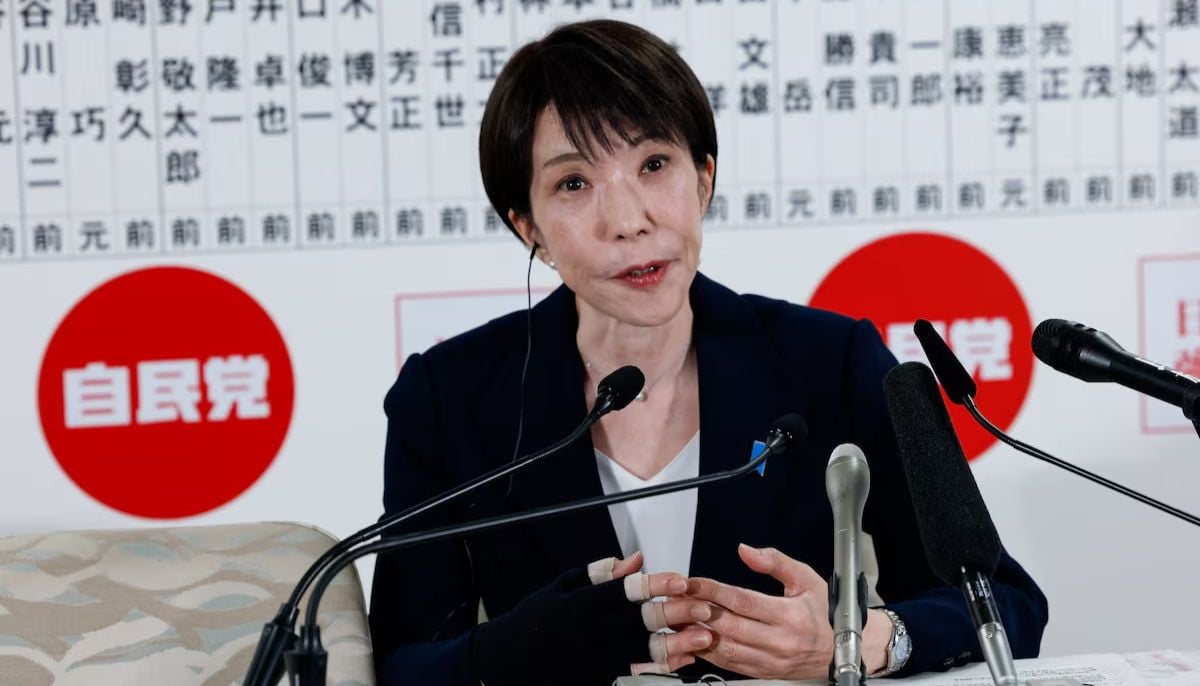Amartya Sen suggests solutions to gendercide
DALLAS: Nobel Laureate Economist and Harvard University Professor Amartya Sen has said the scale of gendercide has gone up to 117 million, according to UN reports.
A large portion of these women are killed even before their birth, which is affecting the gender balance in the world.
Dr. Sen was addressing first ever conference on gendercide. The topic of the
By ONLINE
May 09, 2015
DALLAS: Nobel Laureate Economist and Harvard University Professor Amartya Sen has said the scale of gendercide has gone up to 117 million, according to UN reports.
A large portion of these women are killed even before their birth, which is affecting the gender balance in the world.
Dr. Sen was addressing first ever conference on gendercide. The topic of the conference was “Global Gendercide and Women Empowerment for Sustainable Growth”.
The conference was hosted by University of Texas Dallas Asia Center and two nonprofit groups naming “Gendercide Awareness Project” and “South Asia Democracy Watch”.
The event was attended by over 1200 students, faculty, human rights groups and community members from Dallas Fort Worth area.
Dr. Amartya Sen further said that to reduce the level of gendercide, it is important to educate women and provide them with basic health facilities to empower them economically.
He said that selective sex abortion and gendercide is creating negative impact on democratic process as without women representation democratic exercise is futile.
It is imperative for democracies to fully represent people beyond any discrimination.
Professor Sen said:“Educate girls and give them means to be economically independent through their participation in labor force. These are the most important and significant tools to empower women”.
Professor Sen described gender injustice and neglect as the basic cause behind gendercide.
He described the sex selection in abortion as one of the major reason of missing women from world population, but also cited as lack of medical attention, the mother care and gender injustice as primary reasons for low female to male ratio in societies.
The volume of missing women from world population, which Dr. Sen estimated at 100 million in 1990, has gone up to 117 million, according to UN estimates.
Citing empirical evidence in study of gender imbalance, he said the North and West of India have worst record of gender imbalances.
He compared the Bangladesh indicators as far more superior in terms of death of female fetus per 100,000 child birth. He concluded that Bangladesh has far better girls schooling, women healthcare and labor force participation than on Indian side, which has a very strong influence on this indicator.
He said that recent wave of rapes are widely reported in media, most of the victims in these cases are relatively affluent or middle class girls, some of those were medical students, however the sex trafficking of poor women don’t get this kind of focus in the media at all, as poor girls are victims of this heinous trade.
Professor Sen attributed his interest in gendercide studies to Pakistan’s late Dr. Mahboob ul Haque’s landmark contribution to development economics with “Human Development Index”. Dr. Sen built the index in 1990s. Dr. Sen and Dr. Haque were together at Cambridge for their undergraduate studies.
A packed auditorium of 1200 students and community members gave a standing ovation to Professor Sen for his scholarly contribution and devotion to the cause of women empowerment.
The event started with UT Dallas Provost Dr. Hobson Windenthal welcoming the audience and Beverly Hill the President of Gendercide Awareness Project expressing her and all the organizers gratitude towards those who supported this effort.
The President of South Asia Democracy Watch Mr. Amir Makhani said that marginalization of women and gender injustice are the biggest impediments to any democratic society.
The UTD provost Dr. Hobson Windenthal welcomed the audience and introduced Professor Amartya Sen and his work in the field of welfare economics.
Five Pakistani journalists flew in from Pakistan to attend this event. Women rights activists, and people interested in gender justice, South Asian Americans and students of UT Dallas were also in attendance.
UT Dallas Asia Center Director Monique Wedderburn, Gendercide Awareness Project President Beverly Hill, their board members June Chow, Dana, Shammi South Asia Democracy Watch Secretary General Syed Fayyaz Hassan, President Amir Makhani, Vice President Tausif Kamal, board members Raja Zahid Khanzada, Aftab Siddiqui, Pritpal Singh, Asif Effendi, Dr. Mona Kazim Shah, Raja Muzaffar, Dallas Peace Center board member Hadi Jawwad, World without hate Executive Director Valley Reed, Pakistan American Association of Texas President Dr. Javed Ajmal, attended the event
Earlier addressing a press conference at Dallas City Hall Dr. Sen said that countries where gendercide index is high, it is important to introduce new legislation in protection of women and to help them empower and in protection of their basic fundamental rights.
The issue will not be resolved only by giving data and showing numbers. The issue can be worked on, at UN level. South Asia Democracy Watch President Syed Fayyaz Hassan and Gendercide Awareness Project President Beverly Hill said that gendercide is effecting our sociological and ecological environment and is effecting world’s women population.
They said that UN figures of 117 million women missing from world’s population is bigger than people killed in both great wars together.
The press conference was attended by Gendercide Awareness Project President Beverly Hill, their board member Dana, South Asia Democracy Watch Secretary General Syed Fayyaz Hassan, President Amir Makhani, board members Raja Zahid Khanzada, Pritpal Singh, and Raja Muzaffar.
A large portion of these women are killed even before their birth, which is affecting the gender balance in the world.
Dr. Sen was addressing first ever conference on gendercide. The topic of the conference was “Global Gendercide and Women Empowerment for Sustainable Growth”.
The conference was hosted by University of Texas Dallas Asia Center and two nonprofit groups naming “Gendercide Awareness Project” and “South Asia Democracy Watch”.
The event was attended by over 1200 students, faculty, human rights groups and community members from Dallas Fort Worth area.
Dr. Amartya Sen further said that to reduce the level of gendercide, it is important to educate women and provide them with basic health facilities to empower them economically.
He said that selective sex abortion and gendercide is creating negative impact on democratic process as without women representation democratic exercise is futile.
It is imperative for democracies to fully represent people beyond any discrimination.
Professor Sen said:“Educate girls and give them means to be economically independent through their participation in labor force. These are the most important and significant tools to empower women”.
Professor Sen described gender injustice and neglect as the basic cause behind gendercide.
He described the sex selection in abortion as one of the major reason of missing women from world population, but also cited as lack of medical attention, the mother care and gender injustice as primary reasons for low female to male ratio in societies.
The volume of missing women from world population, which Dr. Sen estimated at 100 million in 1990, has gone up to 117 million, according to UN estimates.
Citing empirical evidence in study of gender imbalance, he said the North and West of India have worst record of gender imbalances.
He compared the Bangladesh indicators as far more superior in terms of death of female fetus per 100,000 child birth. He concluded that Bangladesh has far better girls schooling, women healthcare and labor force participation than on Indian side, which has a very strong influence on this indicator.
He said that recent wave of rapes are widely reported in media, most of the victims in these cases are relatively affluent or middle class girls, some of those were medical students, however the sex trafficking of poor women don’t get this kind of focus in the media at all, as poor girls are victims of this heinous trade.
Professor Sen attributed his interest in gendercide studies to Pakistan’s late Dr. Mahboob ul Haque’s landmark contribution to development economics with “Human Development Index”. Dr. Sen built the index in 1990s. Dr. Sen and Dr. Haque were together at Cambridge for their undergraduate studies.
A packed auditorium of 1200 students and community members gave a standing ovation to Professor Sen for his scholarly contribution and devotion to the cause of women empowerment.
The event started with UT Dallas Provost Dr. Hobson Windenthal welcoming the audience and Beverly Hill the President of Gendercide Awareness Project expressing her and all the organizers gratitude towards those who supported this effort.
The President of South Asia Democracy Watch Mr. Amir Makhani said that marginalization of women and gender injustice are the biggest impediments to any democratic society.
The UTD provost Dr. Hobson Windenthal welcomed the audience and introduced Professor Amartya Sen and his work in the field of welfare economics.
Five Pakistani journalists flew in from Pakistan to attend this event. Women rights activists, and people interested in gender justice, South Asian Americans and students of UT Dallas were also in attendance.
UT Dallas Asia Center Director Monique Wedderburn, Gendercide Awareness Project President Beverly Hill, their board members June Chow, Dana, Shammi South Asia Democracy Watch Secretary General Syed Fayyaz Hassan, President Amir Makhani, Vice President Tausif Kamal, board members Raja Zahid Khanzada, Aftab Siddiqui, Pritpal Singh, Asif Effendi, Dr. Mona Kazim Shah, Raja Muzaffar, Dallas Peace Center board member Hadi Jawwad, World without hate Executive Director Valley Reed, Pakistan American Association of Texas President Dr. Javed Ajmal, attended the event
Earlier addressing a press conference at Dallas City Hall Dr. Sen said that countries where gendercide index is high, it is important to introduce new legislation in protection of women and to help them empower and in protection of their basic fundamental rights.
The issue will not be resolved only by giving data and showing numbers. The issue can be worked on, at UN level. South Asia Democracy Watch President Syed Fayyaz Hassan and Gendercide Awareness Project President Beverly Hill said that gendercide is effecting our sociological and ecological environment and is effecting world’s women population.
They said that UN figures of 117 million women missing from world’s population is bigger than people killed in both great wars together.
The press conference was attended by Gendercide Awareness Project President Beverly Hill, their board member Dana, South Asia Democracy Watch Secretary General Syed Fayyaz Hassan, President Amir Makhani, board members Raja Zahid Khanzada, Pritpal Singh, and Raja Muzaffar.
-
Martha Stewart on surviving rigorous times amid upcoming memoir release
-
18-month old on life-saving medication returned to ICE detention
-
Cardi B says THIS about Bad Bunny's Grammy statement
-
Chicago child, 8, dead after 'months of abuse, starvation', two arrested
-
Funeral home owner sentenced to 40 years for selling corpses, faking ashes
-
Australia’s Liberal-National coalition reunites after brief split over hate laws
-
Savannah Guthrie addresses ransom demands made by her mother Nancy's kidnappers
-
Washington Post CEO William Lewis resigns after sweeping layoffs











